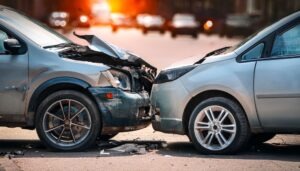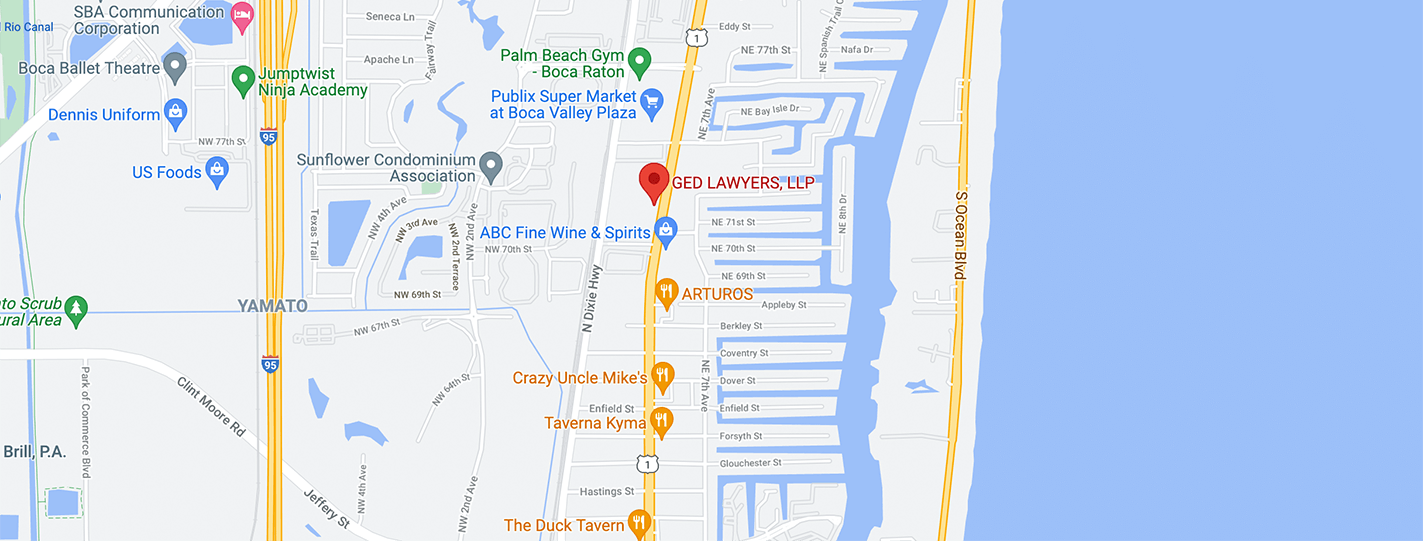
Some of the most common signs that you may have post-traumatic stress disorder (PTSD) after a car accident include flashbacks, sleep problems, brain fog, being frightened easily, self-destructive behavior, disproportionate physical reactions, mood swings, isolation, depression, and anxiety or avoidance associated with vehicles.
If you believe you are suffering from PTSD, we encourage you to seek help from a mental healthcare professional, as several treatments are available for this serious condition. We also encourage you to contact a Boca Raton car accident lawyer who can explain your options for seeking compensation for your PTSD and other accident-related losses.
What Is PTSD?
PTSD is a mental health condition that can develop after someone sees or experiences one or more traumatic events. While PTSD is most commonly associated with members of the military who witness or experience trauma on the battlefield, this condition can result from any traumatic or threatening event, including a car accident.
After a car crash, it’s normal to feel shock, anxiety, and fear. However, these feelings should lessen with time. If you experience recurring or long-lasting symptoms that affect your ability to function long after the accident, you may have PTSD.
we are here for our clients and their legal needs, with proficiency in a broad range of fields. GET A FREE CONSULTATION
How Can You Know if You Have PTSD After a Car Accident?
While the condition affects everyone differently, there are several common symptoms associated with PTSD after a car accident, including:
1. Frequent and Intense Flashbacks
While thinking about the accident and wondering what you could have done differently to avoid it in the days following the crash is fairly normal, PTSD can take these feelings to the extreme. If your mind replays the accident over and over again, making you feel like you are back in the car and re-living the accident repeatedly, this can be a sign of PTSD.
2. Sleep Issues
Being unable to sleep because of flashbacks or recurring nightmares associated with the crash is another symptom of PTSD.
3. Brain Fog
According to Psychology Research and Behavior Management, persistent “brain fog” is a common symptom of PTSD. This is often manifested in patients who:
- Have difficulty concentrating or focusing on tasks
- Cannot think clearly
- Experience memory issues
4. Being Startled or Frightened Easily
People with PTSD often have heightened reactions to sounds, causing them to experience sudden and intense fear in everyday situations.
Just as a war veteran may become frightened by a book falling on the floor because their brain thinks it sounds like a gunshot, car accident victims with PTSD may be startled by any sound that reminds them of the accident, even if it’s something as minor as a car horn honking or engine revving. In some cases, sounds, sights, or other stimuli completely unrelated to the accident may startle a PTSD patient.
5. Self-Destructive Behavior
One of the most concerning signs of PTSD is self-destructive behaviors, such as excessive drinking. If you or a loved one is engaging in self-harm or other dangerous actions, call or text the 988 Suicide & Crisis Lifeline for immediate help.
6. Physical Reactions
According to the Mayo Clinic, some of the physical symptoms of PTSD include sweating, shortness of breath, shaking, and rapid heartbeat. Victims may experience these symptoms any time they think about the crash.
7. Aggression, Anger, or Mood Swings
If you become irritated more easily, experience angry outbursts, or start exhibiting aggressive behavior after a car accident, these may be signs of PTSD.
8. Isolation
People with PTSD may isolate themselves from friends and family because they fear no one will understand what they’re going through or don’t want to be seen as a burden.
9. Depression
For some people living with PTSD, depression manifests as numbness or an inability to enjoy activities they previously loved. For others, it results in negative thoughts, feelings of worthlessness, or extreme and persistent sadness. If your depression causes you to experience suicidal thoughts or a desire to engage in self-harm, contact the 988 Suicide & Crisis Lifeline.
10. Anxiety or Avoidance Associated With Vehicles
PTSD may cause accident victims to avoid talking about the accident (or get very upset when someone else mentions it) or refuse to ride in cars, whether as a driver or passenger.
How Is PTSD Diagnosed After a Car Accident?
According to the National Institute of Mental Health, you generally must have
symptoms that last for longer than one month and interfere significantly with your daily life to receive a PTSD diagnosis from a mental health professional. Adults generally must experience at least:
- One re-experiencing symptom (such as flashbacks, nightmares, or physical symptoms)
- One avoidance symptom (such as avoiding cars or other things that remind them of the crash)
- Two arousal symptoms (such as being easily startled, difficulty concentrating, sleep issues, or destructive behavior)
- Two cognition or mood symptoms (such as depression, social isolation, or repressed thoughts and feelings about the accident)
PTSD is a serious mental health condition. Even if you’re unsure whether you meet these exact criteria, getting a mental health evaluation is important and will enable you to understand what treatments you may need to start overcoming the trauma you experienced.
with compassionate advice and professional assistance. CALL US TODAY
Can You Get Compensation for PTSD After a Car Accident?
Many people don’t realize that, in addition to coverage of any pain or medical bills incurred because of physical injuries, they may be able to recover compensation for mental health conditions such as PTSD after a car accident.
Not only can you seek coverage of your mental healthcare costs, such as those related to counseling or medications, but PTSD may also be compensable in itself as a non-economic damage. Our personal injury lawyers can evaluate your car accident claim and explain your options for recovering fair compensation.
We look forward to hearing from you and helping you with your legal needs. CALL FOR A FREE EVALUATION
Our Legal Team Can Help You Pursue Compensation for Your PTSD After a Car Crash
If you are suffering from PTSD after a car accident, you are not alone. Help is available, and you can heal with time. Our legal team at GED Lawyers can handle your case while you get the treatment you need.
To learn more about your options for recovering compensation for signs of PTSD or other losses after a car accident, contact us today. We offer free initial consultations.
